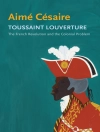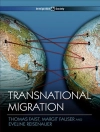Native America: A History, Second Edition offers a thoroughly revised and updated narrative history of American Indian peoples in what became the United States. The new edition includes expanded coverage of the period since the Second World War, including an updated discussion of the Red Power Movement, the legal status of native nations in the United States, and important developments that have transformed Indian Country over the past 75 years. Also new to this edition are sections focusing on the Pacific Northwest. Placing the experiences of native communities at the heart of the text, historian Michael Leroy Oberg focuses on twelve native communities whose histories encapsulate the principal themes and developments in Native American history and follows them from earliest times to the present.
* A single volume text ideal for college courses presenting the history of native peoples in the region that ultimately became the United States from ancient America to the present
* A work that illustrates the great diversity in the historical experience of native peoples and spotlights the importance of Native Americans in the history of North America
* A supplementary website (Michael Leroy Oberg.com) includes resources for teachers and students, including a resource guide, links to primary source documents, suggestions for additional readings, test and discussion questions, and an author’s blog.
Содержание
List of Figures ix
List of Maps xi
Introduction 1
1 Myths and Legends 7
The Beginning of the World 7
Rules for Living 13
Bears 21
2 Worlds New and Worlds Old 25
The Fundamental Violence of Discovery 25
Paths of Destruction 26
Tsenacommacah 33
The Mohegans 39
New Worlds 44
3 Living in the New World 45
Mourning Wars 45
Colonizing the Mohegans 49
The Word of God 51
Colonizing the Powhatans 55
Forging the Covenant Chain 58
Native Peoples and the French in a World of War 59
The Pueblos’ Revolt 63
Horses 67
The Grand Settlement 70
The Cherokees 72
Native Peoples and the Nature of Empires 76
4 Native Peoples and the Fall of European Empires 79
Penn’s Woods 79
The Potawatomis in a World of Conflicting Empires 80
Settlement and Unsettledness 83
Life at the Western Door 87
Behind the Frontier 89
The Great Wars for Empire 96
The Proclamation and the Indian Boundary Line 105
Indians and Empires 107
5 Native Peoples and the Rise of a New American Empire 109
Change in the Far Western World 109
Declarations of Independence 120
The Revolution and the Longhouse 123
Cherokees and Chickamaugas 125
England’s Allies and the Confederation 128
The Six Nations and the Empire State 130
Confederations 132
A New Order for the Ages 133
1794, A Year of Consequence 137
The White Man’s Republic 139
6 Relocations and Removes 141
The Mohegans’ Struggle for Independence 141
The Rise of the Prophet 146
Handsome Lake 151
Dispossessing the Senecas 155
Pioneers and Exiles 159
Removing from the Missions 169
The Optimism of the Imperialist 170
7 The Invasion of the Great West 171
Pledges and Promises 171
Settling In and Settling Down 179
Homesteaders 182
Concentration 186
The Indians’ Civil War 195
Peace and War 197
8 The Age of Dispossession 211
‘Conform To It or Be Crushed By It’ 211
Spelatch 212
Ghost Dancers 215
The Assault on Indian Identity 217
Living Under the New Regime 221
The New Life in the Indian Territory 225
The Crows and the Life on the Northern Plains 234
Native Peoples in the Eastern United States 238
A Movement for Reform 242
The Origins of the Indian New Deal 245
9 New Deals and Old Deals 249
Reforming Indian Policy 249
Native Peoples and World War II 255
Termination and the Coalminer’s Canary 259
Cleaning the Slate 266
New Frontiers 270
Red Power 272
10 Sovereign Nations and Colonized Nations 281
The Importance of 1978 282
The State of the Nations 285
Exercising Sovereignty 292
Toward the Future 300
Bibliography 303
Index 345
Об авторе
Michael Leroy Oberg is Distinguished Professor of History at SUNY-Geneseo. The author of seven books on Native American history, Oberg received a SUNY Chancellor’s Award for Excellence in Teaching in 2003 and a Chancellor’s Award for Excellence in Scholarship in 2013.












